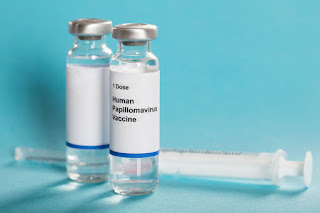Human papillomaviruses, also called HPV, are sexually transmitted diseases. These are the most common sexually transmitted diseases in the United States. In addition to causing a great deal of pain and possibly even cancer, HPV is also one of the most difficult sexually transmitted diseases to contract. Because so many people are exposed to this virus on a daily basis, it is important for people to understand HPV, how it works, and how they can get HPV if they have sex. This article will discuss some of the latest developments regarding Human Papillomavirus (HPV) infection vaccines research.
Currently, there are no known cures for HPV. However, there are medications and other options available to help prevent the virus from causing cancer and other serious medical conditions. The Human Papillomavirus (HPV) infection vaccines is an effective way to prevent the transmission of certain types of HPV. Available HPV vaccines protected by the HPV vaccine to protect against either two three, four, or eight different types of HPV. The vaccines include, 9-valent HPV vaccine (Gardasil 9, 9vHPV), quadrivalent HPV vaccine (Gardasil, 4vHPV), and bivalent HPV vaccine (Cervarix, 2vHPV). All three Human Papillomavirus (HPV) infection vaccines protect against HPV types 16 and 18 that cause most HPV cancers.
Like any other vaccination, getting vaccinated means you must receive a second shot after your initial treatment. Most people are given their first shot at age fourteen or twenty-four. People who did not receive their first shot can now receive the second shot through Human Papillomavirus (HPV) infection vaccines programs offered by a variety of companies. For people ages sixteen to twenty-four, the second shot is recommended after two years.
The Human Papillomavirus (HPV) infection vaccines are relatively safe. Many experts believe that it is just as safe as getting the regular doses of the Gardasil vaccine. However, there are still concerns surrounding the possible side effects from this new development. Since people ages and HPV infections occur in various ways, it is hard to say how side effects will affect individuals. However, there is some evidence that suggests that the new HPV vaccine may cause some mild, but rare side effects.
Many experts agree that the best way to protect yourself from HPV is to use protection during all of your sex life. You can purchase the Human Papillomavirus (HPV) infection vaccines and keep regular pap tests to monitor your condition. When you notice any symptoms of HPV infection, you should consult with your doctor and schedule a pap test immediately. This will help prevent you from infecting anyone else and protect you from cervical cancer, the most common sexually transmitted infection today.
In the few cases of Human Papillomavirus (HPV) infection vaccines side effects experienced by women, redness of the genitals may be present. There is no way to determine if the HPV vaccine caused this symptom, since it is possible to have redness even with normal levels of HPV infection in your body. However, it is important to note that in most cases, the redness will go away after a few weeks.




No comments:
Post a Comment